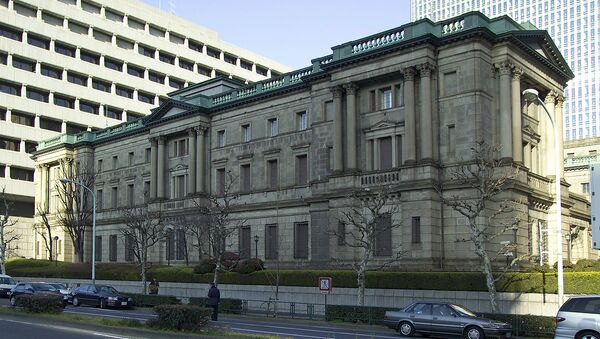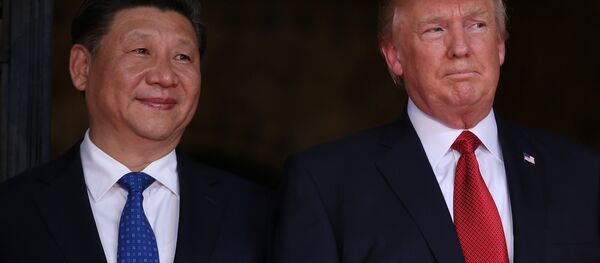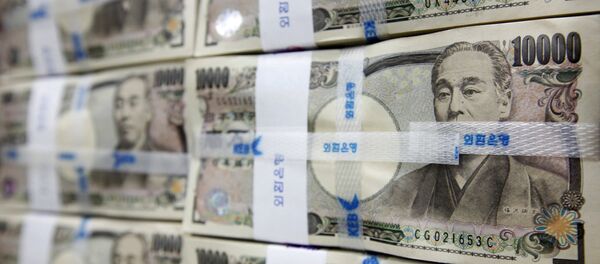Kristian Rouz — The Japanese economy is seen as having contracted in the first quarter — for the first time in two years — which is putting into question the feasibility of the Bank of Japan's (BoJ) policy course.
The BoJ has exercised its unconventional policies of negative interest rates (NIRP) for years, keeping base borrowing costs at —0.1 percent in hopes to stimulate domestic lending and investment.
However, the recent personnel changes at the BoJ, coupled with the renewed recession concerns and the still-underperforming inflation, might challenge the central bank's commitment to the current policy course.
READ MORE: Beijing to Become Driving Force for Free Trade Zone With Seoul, Tokyo — Analyst
"The economy had steadily recovered but it appeared to have come to a temporary standstill," Yoshiki Shinke of Dai-ichi Life Research Institute said. "Economic indicators such as factory output and firms' business sentiment have shown a softening momentum of the economy. The GDP data will likely reflect those moves."
Economics experts are expecting Japan's economy to have shrunk by 0.2 percent in Q1, compared to a 1.6-percent expansion in the previous quarter.
This comes amidst the ongoing gradual acceleration in the global growth — which might suggest either the Japanese economy will sharply rebind in the second quarter, or Japan's approach to foreign trade has become not as beneficial to its overall GDP as it was in the past.
READ MORE: Japan, US Advance Trade Talks, Weigh Bilateral Deals, TPP
If the expansion ends, it might entail additional political risks for Prime Minister Shinzo Abe, who has repeatedly touted his "Abenomics" as a path to economic triumph. Additionally, the Prime Minister is facing mounting accusations of corruption.
This means the Abe cabinet will seek to work with the BoJ to support more rapid economic expansion this year in order to avoid two consecutive quarters of contraction — a formal sign of a full-blown recession.
READ MORE: Japanese Finance Minister Urges Against Bilateral Trade Deal With US
Japan, however, can't afford a structural recession at this point due to the elevated risks in its financial system.
"The (BoJ banking sector health) report is signaling the possibility that excessive risk-taking and distortions are increasing," Ryutaro Kono of BNP Paribas said. "The BOJ may be preparing an argument to justify a future policy normalization."
Wakatabe might introduce additional unconventional measures of monetary stimuli, such as going deeper into the negative territory with benchmark rates or injecting money liquidity into the banking system through standby facilities.
His proposed policies could be aimed at stimulating inflation in hopes that higher prices would drive the GDP expansion.
"Wakatabe is known as a hard-core reflationist, and so could persist to his views even as deputy governor," Koichi Fujishiro of Dai-ichi Life Research Institute said. "While additional monetary easing may be some time away, his presence alone could dampen prospects of an early exit (from NIRP)."
READ MORE: Bank of Japan Braces for Personnel Changes, Rates Adjustment
However, the threat of recession, coupled with Deputy Governor Wakatabe's view of inflation, might counterbalance Kuroda's leanings to gradually envelope the NIRP.
Japan's official GDP data for 1Q18 will be released on May 16.






